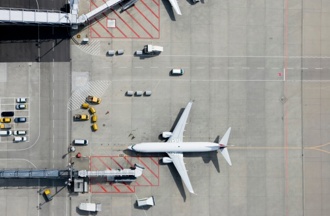
Geneva - The International Air Transport Association (IATA) has started legal action in the Netherlands to prevent the application of a new Policy Rule (Rule) for slot allocation that would have significant negative effects on the globally functioning system of slot allocation and would result in very significant (commercial) damage for the members of IATA.
The Rule was implemented by the Netherlands slots coordinator, ACNL, to take effect for the Summer 2022 season. It prescribes a list of priority destinations for slots at three congested Dutch airports (Amsterdam Schiphol, Eindhoven and Rotterdam The Hague). This would contravene the European regulation on the common rules for community air services (1008/2008) and the European Slot Regulation (95/93) in several respects.
The Rule was improperly implemented. ACNL unilaterally applied the Rule without the proper consultation of interested parties, as would be required under EU law.
The most egregious impacts of the Rule’s implementation can be summarized as follows.
- The Rule compromises the efficient development of air connectivity: Royal Schiphol Group (RSG) has developed the list of routes and would be allowed to directly influence all future new slot allocation for their airports, ignoring key global principles of the slot allocation such as encouraging competitive markets and providing consumers choice for products and services. The airlines’ business is to understand consumer demand and respond to it by developing schedules tailored to seasonal needs and market specificities. Taking decision-making authority out of the fair and impartial global slot process and putting it in the hands of the airport would therefore be detrimental to the development of efficient air connectivity with negative impacts on individual consumers, businesses and ultimately the Dutch economy.
- The Rule poses significant harm to the independent, impartial role of slot coordinators in the EU: Independence and impartiality in implementing the Worldwide Airport Slot Guidelines (WASG) in line with applicable local law is a fundamental principle of coordination. This Rule contravenes both EU law and the WASG. Allowing it to remain in place will seriously jeopardise the functioning of the worldwide slot allocation system. Moreover, it will have serious adverse effects on the role of other Coordinators within the EU who operate in regimes that respect the WASG and EU law.
“In addition to contravening EU regulations, the setting of priority destination lists by RSG as part of the slot allocation process is bad for consumers, businesses, airlines and the economy. Moreover, straying from established global standards risks damage to international relations. The application of the Rule in slot allocation decisions compromises the role of the independent and impartial slot coordinators enshrined in EU law, instead requiring priority to be given in their decision-making to a list of destinations. This makes the coordinator the servant of the airport to the disadvantage of the airlines and the consumer,” said Conrad Clifford, IATA’s Deputy Director General.
The implementation of the Rule will make the market less responsive to consumer needs. “Allowing airports to decide priority for slots by destinations set by themselves for airlines to serve, makes no commercial sense. The slot allocation process must serve the needs of consumers who want to reliably fly or move freight. That means enabling airlines to design schedules that meet consumer demand, not the desires of the infrastructure provider. Slot allocation must be a neutral process matching available slots with commercial potential. The WASG have been painstakingly developed over many years to ensure open competition and the best allocation of scare resources to meet consumer demand. This action by ACNL is a backward step that cannot be allowed to stand,” said Clifford.
For more information, please contact:
Corporate Communications
Tel: +41 22 770 2967
Email: corpcomms@iata.org
Notes for Editors:
- IATA (International Air Transport Association) represents some 350 airlines comprising over 80% of global air traffic.
- You can follow us on X for announcements, policy positions, and other useful industry information.
- Fly Net Zero

